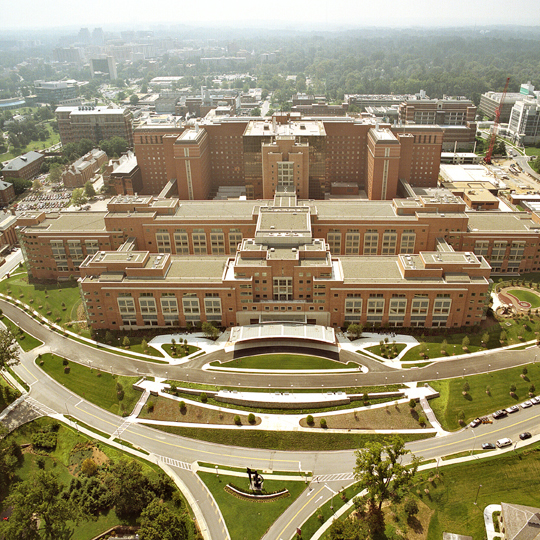On April 28, 2020, the Coalition for Life Science sent the following letter to Congressional leaders. Download a copy of the letter.
Dear Speaker Pelosi, House Minority Leader McCarthy, Senate Majority Leader McConnell, and Senate Minority Leader Schumer:
As with many sectors of our society, the pandemic has had a devastating impact on the U.S. biomedical research enterprise, with ongoing scientific investigations abruptly terminated and labs closed to heed shelter-in-place, stay-at-home guidelines and orders. Notably, COVID-19 relevant work has increased, albeit down-scaled to achieve social distancing, and some researchers have pivoted, launching inspired COVID-related projects that deploy their expertise and technologies to address the crisis. This shift has resulted in the interruption of existing projects. Most importantly, the shut-down of research during the pandemic has been massively disruptive.
The Coalition for the Life Sciences (CLS), an alliance of research institutes, academic professional societies, and biotech/pharma, is grateful to Congress for acting swiftly to provide supplementary funding to a subset of institutes and centers at the National Institutes of Health (NIH) to support new COVID-19 research. It is now essential, even before we know the dimensions of the current crisis, or the timing, penetrance and duration of the predicted second wave of infection, for additional, robust, supplementary funding. The CLS proposes a $34.5 billion supplemental appropriation to NIH in the next emergency relief bill. The NIH has long been a major leader and driving force in life science research, and it is critical for our health, well-being and economy, as well as for the rest of the world. Later in this letter, we provide the logic and rationale for this specific figure. Generally, the funds must address the immediate effects of the pandemic on the overall enterprise, while preventing long-term damage.
It remains unknown how long restrictions will remain in place, or the manner or rate at which they will be relaxed. What is certain is that the recovery will take place over an extended period; indeed, we may never return fully to “business as usual.” We face the cancellation of a long list of scientific meetings that would have brought together hundreds to thousands of researchers to share information. Every institution has cancelled their seminar programs and will miss the opportunity for their researchers to learn from outside speakers about their research findings and ideas. How long will it take to reconstruct experimental animal strains in sufficient numbers to begin research anew, or to recruit participants to restart clinical trials or population studies? And with many institutions imposing hiring freezes currently slated to last more than a year, how long will it take to fill vacant faculty slots or lab staff positions, or to reconstitute study teams, or administrative staff to manage grant applications, grant funds, compliance and regulatory mandates?
These and other disruptions are perhaps most threatening for our next generation of research leaders—graduate students, those completing postdoctoral training (post-docs), and early stage independent investigators. For students, completion of laboratory experiments, preparation of research publications and dissertations, and relocation to begin postdoctoral work are indefinitely delayed, and funding to support extended training periods is unavailable. Visa extensions for noncitizen trainees may be problematic. Postdoctoral scientists generally hold appointments with strict institutional term limits, and in any case, lack sources of extended funding, while their progression to careers as independent investigators will be impeded because searches to fill scientific positions have been suspended across both academia and industry for the 2020- 2021 academic year. Early stage investigators are expending precious startup funds during the shutdown to support staff who are doing scholarly work outside their labs, but who cannot carry out the experiments that would build scientific knowledge, and advance their career aspirations. All of this while a just-released Congressional Research Service report projects that “as some agencies and researchers shift their R&D priorities to respond to the COVID-19 pandemic, the funding available for R&D on other topics may be reduced.”
Faced with numerous unforeseen enterprise-wide challenges in an uncertain, dynamic environment, how might an appropriate and effective level of support be determined? While we support the $31 billion recommendation that you have received from the Ad Hoc Group, CLS proposes an amount sufficient to insert a repeat of the FY2020 budget into every existing extramural research and training funding mechanism,* effectively extending the term and expanding the total award level for each grant.**
We note that this strategy embodies particular elements of fairness, priority and excellence:
[1] Funding would be provided to individuals and programs that have already been peer reviewed and deemed meritorious, and that have directly suffered the kinds of disruptions described above;
[2] Support for existing programs is essential, as they are focused on understanding mechanisms of fundamental biological processes that malfunction in disease, and address the full range of topics and problems crucial to the health and well-being of all;
[3] Funds would be dispersed rapidly and with little administrative burden for grantees, grantee institutions or NIH;
[4] The plan does not trigger a “funding cliff”, unlike many other one-time funding measures, such as a new competitive grant mechanism;
[5] Funds would be widely distributed geographically, benefitting all regions.
While we hope that recovery from the current crisis will be complete in less than a year, it is possible that it will extend longer, necessitating additional supplementary funds. If, by good fortune, the current and subsequent waves of the pandemic subside in under twelve months, the bill could be written to permit expenditure of remaining funds for directly related technological upgrades and essential infrastructure improvements. The critical element, however, and the crucial rationale for this relief package, is prioritization of funding extensions for existing research and training activities, all of which have been compromised by COVID-19, including investigations to prevent future public health challenges like the current one.
Thank you for considering the CLS recommendation and for all that you are doing to address this crisis.
Sincerely,
Keith R. Yamamoto
Chair, Coalition for the Life Sciences
Vice Chancellor for Science Policy and Strategy, UCSF
Director, UCSF Precision Medicine
Vice Dean for Research, School of Medicine Professor, Cellular & Molecular Pharmacology









